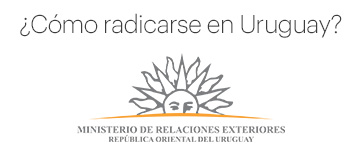Living in Uruguay
Uruguay is quality of life based on harmony and spirit. It is a stable country, with a strong economy and an excellent legal framework to attract investors. It has skilled manpower, who speak a variety of languages and has had solid technical training.
In regards to education and human capital, the country has a qualified and competitive workforce, with high levels of education. In Uruguay, education is compulsory by law from ages 5 to 15 and the literacy rate reaches 97%. The government guarantees free access to education, from preschool to university. 4.5% of the country’s GDP is invested in education and 100% of high school students at the age of 15 have already completed at least 3 years of English and 2 of computer science. 21% of university students study accounting, finance and business management and 17% of university students study sciences and technology. As a result of the “Plan Ceibal” and the “One Laptop per Child” program, all state school students and teachers have a laptop with Internet access.
Uruguay has a first class port infrastructure in Montevideo and has become a regional hub par excellence for the South Cone of America. 65% of goods that come from the region pass through our country in transit. It has one of the most efficient road networks in Latin America and has a solid infrastructure at the service of information technology and telecommunications. It is one of the few countries in the world in which the number of tourist arrivals surpasses its total population.
98% of the national territory has access to electricity and drinking water, at a competitive cost for business activity.
It is considered a leading country in environmental stewardship. Its healthcare standard ranks among the best in the world. It is the South American country with the highest percentage of renewable energy in its energy matrix; by 2015 over 90% is expected to be renewable.
Its infant mortality rate: 10.5 per 1,000. There are no social, racial or religious conflicts. In its last report (2009), Freedom House placed Uruguay among the first countries in the world in the freedom ranking, sharing its position with the Scandinavian countries.
The country has great environmental surroundings in cities and rural areas, and also a great density of parks and green spaces in urban areas. Many schools offer academic programs which can be validated in countries such as USA, France, Germany, United Kingdom or Israel. Likewise, Uruguay has high quality medical service standards: 365 doctors per 100,000 inhabitants. Since 2005, Uruguay is a tobacco smoke-free country, ranking 6th in the world and 1st in South America.
Uruguay is the most pacific country in Latin America according to the Global Peace index 2011, developed by the Institute for Economics and Peace (IEP). In the list of 153 countries, Uruguay holds the 21st position and in the region is followed by Costa Rica which holds the 31st place.
